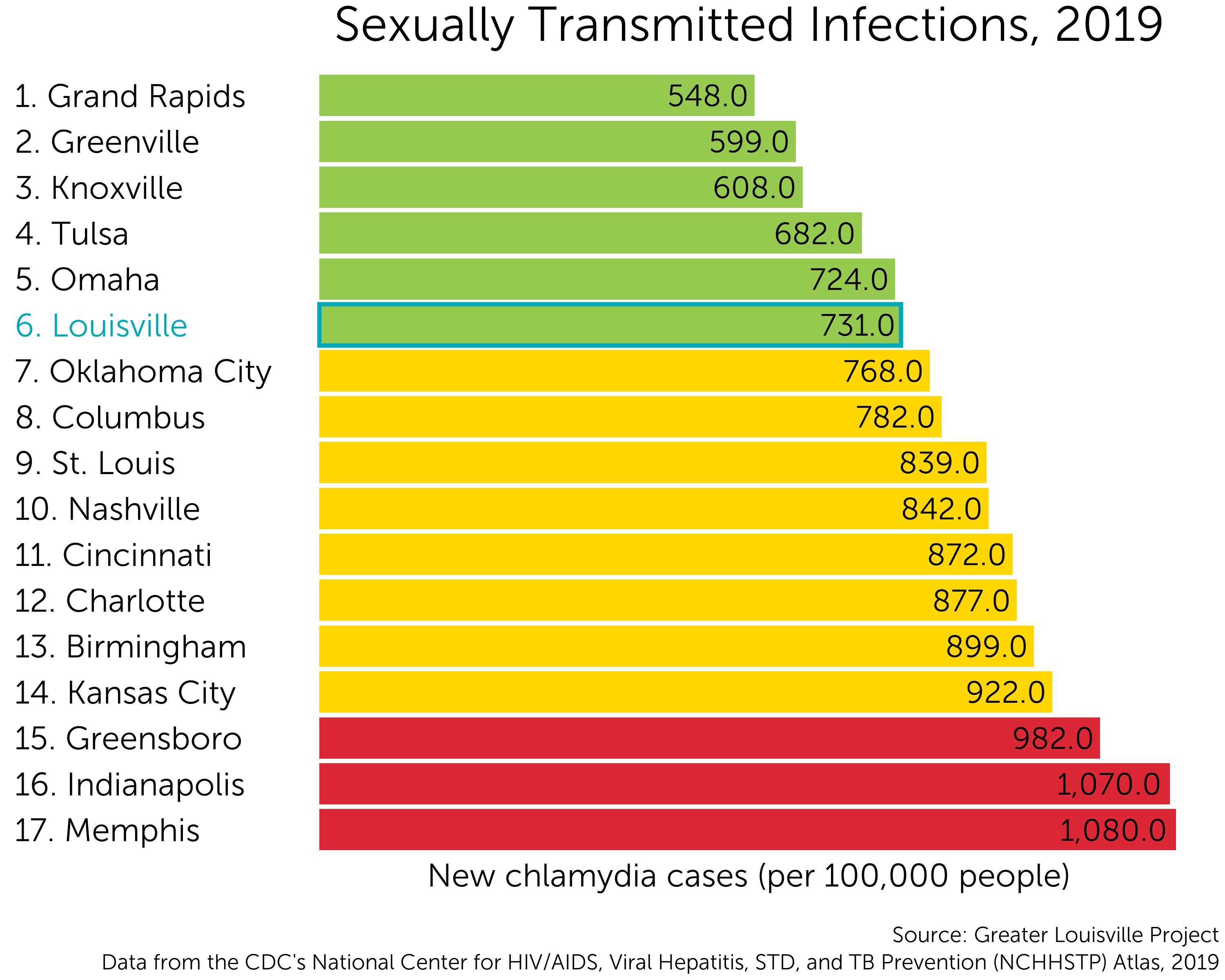Sexually Transmitted Infections
Sexually transmitted infections are becoming more common in the U.S. Infections can lead to long-term health issues like recurrent dysfunction, dementia, infertility, and even death. This analysis focuses on chlamydia because it is a common and easily transmitted infection that is often asymptomatic (presents no outward symptoms). Chlamydia is also of particular concern for women because it can lead to infertility.



